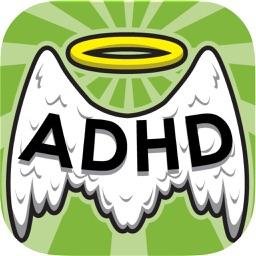Attention Deficit Hyperactivity Disorder (ADHD) is a widely recognized neurodevelopmental disorder that affects millions of individuals worldwide. Despite increased awareness and understanding of ADHD, numerous myths and misconceptions still pervade public discourse. These myths can lead to stigma, misunderstanding, and ineffective management of the condition. In this article, we’ll debunk the top 10 myths about ADHD, providing clarity and fostering a more accurate understanding of this complex disorder.
1. ADHD is Just an Excuse for Poor Behavior
ADHD is often dismissed as an excuse for laziness or poor behavior, suggesting that individuals with the disorder simply lack discipline.
These symptoms are not due to a lack of willpower but are the result of differences in brain structure and function. Individuals with symptoms of ADHD struggle with executive functioning, which affects their ability to plan, organize, and regulate their actions. Proper diagnosis and treatment can help manage symptoms and improve functioning.
2. ADHD Only Affects Children
Many believe that is a childhood condition that people outgrow as they age.
Studies show that approximately 60% of children with continue to experience symptoms in adulthood. Adult can present differently, often manifesting as difficulties with time management, organization, and maintaining relationships. Recognizing and treating ADHD in adults is crucial for improving their quality of life.
3. ADHD is a Result of Bad Parenting
Suggesting that it is a consequence of environmental factors rather than a neurological condition.
Research indicates that it is related to structural and functional differences in the brain, particularly in areas responsible for attention and impulse control. While parenting strategies can influence the management of , they do not cause the disorder.
4. ADHD is Overdiagnosed
There is a belief that is over diagnosed and that many individuals who receive the diagnosis do not actually have the disorder.
While there has been an increase in diagnoses, research supports that is underdiagnosed and undertreated in many cases. Accurate diagnosis requires a comprehensive evaluation by a qualified professional, considering various factors such as developmental history, symptom duration, and impact on daily functioning. The increase in diagnoses reflects a greater awareness and better diagnostic practices, not an over diagnosis.
5. ADHD is Just About Hyperactivity
Many people think is solely about being hyperactive, overlooking other key symptoms.
Predominantly inattentive, predominantly hyperactive-impulsive, and combined presentation. Individuals with the predominantly inattentive type may not exhibit noticeable hyperactivity but still face significant challenges related to attention and focus.
6. Medication is the Only Solution for ADHD
Some believe that medication is the only effective treatment for and that other approaches are ineffective.
They are not the only treatment options. Behavioral therapy, cognitive-behavioral therapy (CBT), psychoeducation, and lifestyle changes such as structured routines and organizational tools can also be beneficial. A comprehensive treatment plan often involves a combination of medication and non-medication strategies tailored to the individual’s needs.
7. ADHD is a Sign of Low Intelligence
There is a misconception that individuals with have lower intelligence or are less capable.
ADHD does not affect a person’s intelligence. People with have a range of intellectual abilities, just like the general population. The disorder affects attention, impulse control, and executive functioning but does not determine a person’s cognitive potential. Many individuals with are highly intelligent and talented, though they may face challenges in certain areas.
8. ADHD Can Be Cured
Currently, there is no cure for management. The goal of treatment is to help individuals manage their symptoms, improve their functioning, and enhance their quality of life. Effective management involves a combination of medication, behavioral strategies, and support from professionals, family, and peers.
9. Caused by Sugar or Diet for AHDH
There is a belief that sugar and diet play a significant role in causing or exacerbating .
Research has not established a direct link between sugar intake and symptoms. However a balanced diet and healthy lifestyle can support overall functioning and well-being, which may help manage symptoms indirectly.
10. People with ADHD Just Need to Try Harder
A common misconception is that individuals with can overcome their challenges simply by trying harder or being more motivated.
involves neurological differences that affect attention, impulse control, and executive functioning. These challenges are not a matter of effort but of brain function. Effective management requires understanding these differences and implementing strategies that accommodate and address the specific difficulties associated with .
Conclusion
Understanding ADHD and dispelling common myths is essential for fostering a supportive environment for individuals affected by the disorder. By recognizing that is a legitimate neurodevelopmental condition, we can better support those who live with it and work towards more effective management strategies. Debunking these myths helps in reducing stigma, improving awareness, and ensuring that individuals with receive the understanding and support they need to thrive.



This was an excellent read. Very thorough and well-researched.